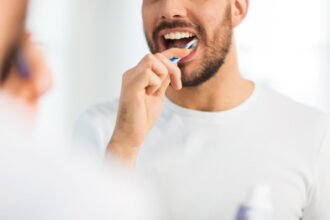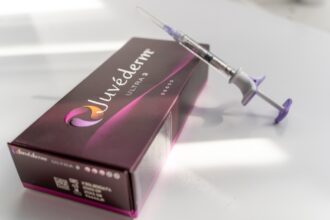Recently, I decided to take up surfing (again). As a 20 year old kid, I was pretty good at most things that required athleticism (even surfing). However, as a 42 year old, things come a little harder. My daughter began taking surfing lessons about 9 months ago from a young professional surfer. She quickly was able to get up on the board and was soon riding waves (upright) to shore. I decided that I wanted to re-learn how to catch a wave so that I could spend some quality time in the water with her during the warmer months.
Recently, I decided to take up surfing (again). As a 20 year old kid, I was pretty good at most things that required athleticism (even surfing). However, as a 42 year old, things come a little harder. My daughter began taking surfing lessons about 9 months ago from a young professional surfer. She quickly was able to get up on the board and was soon riding waves (upright) to shore. I decided that I wanted to re-learn how to catch a wave so that I could spend some quality time in the water with her during the warmer months. I borrowed a longboard (you know, the one the old men ride) and quickly realized that I needed to get a few lessons from her teacher as well. After a few lessons, I was back up, riding waves to shore. However, the toll on my body was significant–fin cut on my leg, deep bruising of my thigh, cuts on my left foot and a nearly torn off toenail. However, no matter how much my body ached, I was quickly back out in the surf. Eventually, I began to feel comfortable on the waves again and was able to stand and ride to shore, even “dropping in” and riding down the wave from time to time.My experience with re-learning to surf made me think about how it must be for patients who are recovering from a myocardial infarction or heart attack. Certainly, as I have discussed in a prior blog, cardiac events can be major psychological stressors and can be associated with PTSD. Additionally, patients may develop avoidance type behaviors. For example, if a patient had a heart attack while walking in the mall they may refuse to go to the mall post-event. Many patients become reclusive, inactive and actually experience a significant decline in overall health status. Much has been written in the literature about the negative impact of avoidance behaviors. As clinicians who care for post MI patients, we must help our patients “learn to surf” again
Patients who have experienced life threatening events have much in common. Certainly anxiety and fear of recurrence are paramount. Several strategies can be employed to help our patients deal with these feelings. What can we as clinicians do? Take them surfing….
 1. Regain control: When sick and in the hospital, patients lose all control. For most, this can be a frightening experience. Patients can regain control by becoming actively engaged in their post MI care. Data provides power. Data provides control. Educate patients on the medications you have prescribed and why. Let them know that ACE inhibitors, Beta blockers, Aspirin, and cholesterol lowering meds have been shown to reduce mortality and prolong life in the appropriate cardiac patient. Engage patients in monitoring medication effects such as maintaining a BP log, or charting their cholesterol response over time. Help them choose an appropriate surfboard and help them understand how the board is best suited to their needs. Tell them why and how the long board will help them stand up and ride the wave to shore.
1. Regain control: When sick and in the hospital, patients lose all control. For most, this can be a frightening experience. Patients can regain control by becoming actively engaged in their post MI care. Data provides power. Data provides control. Educate patients on the medications you have prescribed and why. Let them know that ACE inhibitors, Beta blockers, Aspirin, and cholesterol lowering meds have been shown to reduce mortality and prolong life in the appropriate cardiac patient. Engage patients in monitoring medication effects such as maintaining a BP log, or charting their cholesterol response over time. Help them choose an appropriate surfboard and help them understand how the board is best suited to their needs. Tell them why and how the long board will help them stand up and ride the wave to shore.
2. Educate: When a life threatening cardiac event occurs to a patient, many have no idea why. Spend time explaining the physiology of the event to the patient and family after discharge during an office visit. Help patients understand the biology of the cardiac event and understand how and why it was treated in the way that it was. Through greater understanding, patients are less likely to rely on unreasonable and unhealthy coping mechanisms such as avoidance of activities associated with the cardiac event (such as walking in the mall). Help them understand how the wave forms, how it gains momentum and how to paddle in at the perfect time to ride to shore.
3. Coach: Enroll patients in appropriate cardiac rehab activities. By working with certified rehab personnel and exercising in supervised environments, patients are more likely to gain confidence. Track progress and discuss the gains that are made during an office visit. Provide encouragement even when the patient expresses difficulty with exercise and fatigue–help them get back up and ride the next wave after wiping out.
I am still sore from surfing this past week. But, I continue to get back up on the board and ride the waves. I find great peace and great pleasure in the ocean and on the board. Sometimes I wipe out, sometimes I get a few bruises. But I continue to surf. Let’s remember to keep our patients from avoiding things that may give them great pleasure. Just because a life threatening cardiac event is survived, doesn’t mean we have to stop living. Avoidance behaviors can be destructive. Help patients recover and get back up on their particular surfboard. Spend time educating, coaching and empowering your patients. Share as much data as you can. Help your patients learn to “Hang Ten”!










